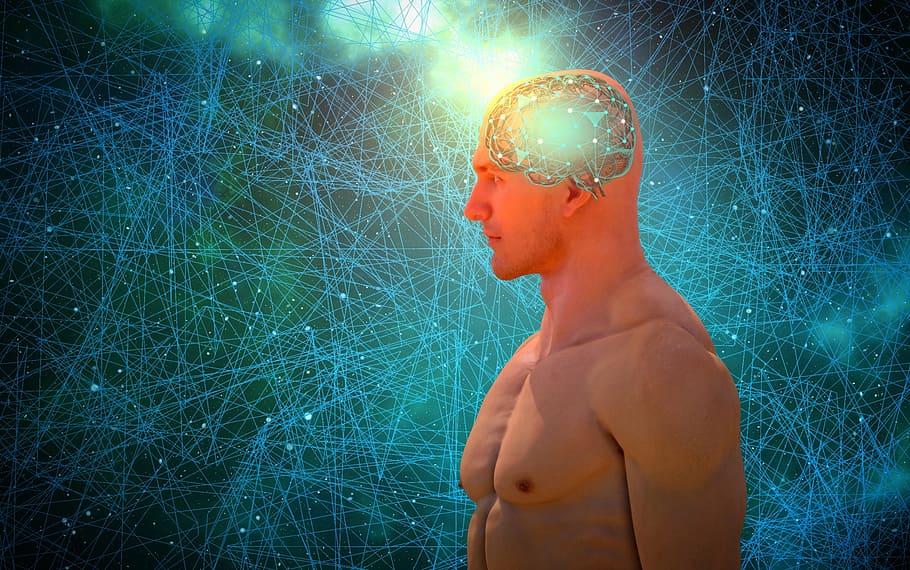
Artificial intelligence, a concept that was once confined to the realms of science fiction, has now become an integral part of our everyday lives. From voice assistants like Siri and Alexa to autonomous vehicles and advanced data analytics, AI has seamlessly integrated into various industries, transforming the way we live, work, and interact with technology.
The rise of artificial intelligence has brought forth a wave of transformative advancements, propelling us into a future that was once unimaginable. With its ability to process vast amounts of data, identify patterns, and learn from experience, AI has revolutionized many sectors, including finance, healthcare, transportation, and even creative industries. Through machine learning algorithms, computers can now analyze complex data and make informed decisions, often surpassing human capabilities in terms of speed and accuracy.
One of the main reasons behind the rapid growth of AI lies in the exponential increase in computing power and the availability of big data. As technological advancements continue to push the boundaries of what is possible, AI systems are becoming more proficient and capable of tackling complex tasks. From recommendation engines that predict our preferences to chatbots that provide customer support, AI has become an indispensable tool for businesses seeking to gain a competitive edge in the digital landscape.
However, with the remarkable progress that artificial intelligence has made, concerns around its ethical implications and potential risks have also emerged. Questions regarding privacy, job displacement, and the potential misuse of AI-powered technologies have sparked debates worldwide. As AI continues to evolve and permeate various aspects of our lives, it becomes essential to find a balance between harnessing its potential and ensuring its responsible and ethical deployment.
In this era of constant innovation, one thing is certain: artificial intelligence is undeniably reshaping our world. As we embrace the power of AI, it is crucial to ponder the ethical considerations and work towards creating an AI-driven future that benefits all of humanity. With the rise of AI, we are unlocking a future that holds immense potential, pushing boundaries, and propelling us into a new era of possibilities.
Applications of AI
Artificial intelligence has rapidly become a transformative force across various industries and sectors. Its capabilities and potential applications are vast, and as we delve further into the digital age, AI continues to unlock new possibilities. In this section, we will explore some of the remarkable applications of artificial intelligence.
Enhancing Healthcare: AI is revolutionizing healthcare by assisting medical professionals in multiple ways. It helps in diagnosing diseases, analyzing medical images such as X-rays and MRIs, and predicting potential outbreaks. By leveraging AI technologies, healthcare providers can offer more accurate and timely diagnoses, leading to better patient outcomes.
Virtual Receptionist SoftwareImproving Transportation: AI is reshaping the transportation industry by enhancing safety, efficiency, and sustainability. Self-driving cars powered by AI are set to transform the way we travel. Furthermore, AI algorithms are improving traffic management systems, optimizing route planning, and reducing fuel consumption. With AI’s assistance, transportation is becoming smarter and more accessible.
Transforming Customer Service: AI-powered chatbots and virtual assistants are revolutionizing customer service across various industries. These intelligent systems can engage in natural language conversations, providing quick and accurate responses to customer queries. By automating routine tasks and offering personalized assistance, AI is reshaping the customer service landscape, enhancing user experiences, and improving business efficiency.
These are just a few examples of how artificial intelligence is unlocking new possibilities and driving innovation across industries. As technology continues to evolve, the potential applications of AI are boundless, and we are only scratching the surface of its transformative power. The rise of AI is undoubtedly paving the way for a future where machines and humans collaborate to unlock unprecedented advancements.
Challenges and Limitations
Data Quality and Bias
One of the key challenges in the field of artificial intelligence is ensuring the quality of data. AI systems heavily rely on data to learn and make decisions, and if the input data is flawed or biased, it can significantly affect the accuracy and fairness of the results. Ensuring high-quality and diverse datasets becomes crucial as AI technology advances, to minimize the risks associated with biased algorithms and potential discrimination.
Ethical Considerations
The rise of AI technology also brings forth ethical considerations that need to be addressed. As AI systems become more autonomous and capable of making decisions on their own, questions arise about the potential impact on human jobs, privacy, and even safety. Striking the right balance between leveraging the power of AI and ensuring ethical use is essential for the responsible development and deployment of artificial intelligence.
Transparency and Explainability
Another limitation of AI lies in its lack of transparency and explainability. Deep learning models, for example, can provide highly accurate predictions, but often work as "black boxes" where it’s difficult to understand how they arrive at those conclusions. This raises concerns, especially in critical areas like healthcare or finance, where explanations and justifications for AI-generated outcomes become crucial. Developing techniques that enhance the interpretability and transparency of AI systems will be key for building trust and ensuring accountability.
Ethical Considerations
Artificial intelligence (AI) undoubtedly holds immense potential for transforming various aspects of our lives. However, with this great power comes the need for careful ethical considerations. As AI becomes more advanced and ubiquitous, it is crucial to address the potential ethical implications that arise from its implementation.
One of the primary concerns surrounding AI is the issue of bias. Machine learning algorithms, which form the basis of many AI systems, are trained on vast amounts of data. If this data is biased in any way, the AI system can inadvertently learn and replicate these biases, leading to unfair outcomes. It is essential to continually monitor and evaluate AI systems to ensure they do not perpetuate or reinforce existing societal biases.
Transparency and accountability are also crucial factors to consider in the development and deployment of AI. As AI systems become more complex, it becomes difficult to understand how they arrive at their decisions or recommendations. It is important to establish clear guidelines and mechanisms for auditing and explaining the decision-making processes of AI systems. This transparency is necessary not only for ensuring the fairness and trustworthiness of AI, but also for holding developers and organizations accountable for the consequences of their AI systems.
Lastly, privacy and data protection are fundamental ethical considerations in the age of AI. AI systems often rely on vast amounts of personal data to train and operate effectively. Safeguarding this data and ensuring individuals’ privacy rights are respected is of utmost importance. Clear regulations and robust data protection frameworks must be in place to prevent unauthorized access or misuse of personal information.
In conclusion, while AI holds tremendous promise, it is essential to address the ethical considerations associated with this technology. By actively focusing on issues such as bias mitigation, transparency, accountability, and privacy, we can ensure that AI is harnessed responsibly, ethically, and in a manner that benefits society as a whole.





